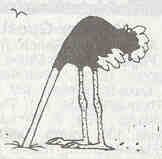
A question: Who or what links the following names: Domnus, Eusebius, Eustathius, Spyridion, Marcus and Athanasius?
Yes, you’re right, the answer is of course, the First Council of Nicaea. It was ‘Athanasius’ that gave it away, wasn’t it? Too easy.
Well, that wonderfully corrupt council which had so much to do with the modern foundation of the restrictive, authoritarian and repressive organization known as Christianity leaped unbidden to mind today when I, like a modern Hamlet, pondered the empty plastic carton resting lightly in my outstretched hand which had contained the minced beef that had been the basis for a version of fajitas (recipe courtesy of Paul Squared) for our late, late lunch.
Consider: the carton has a frame of plastic with a layered plastic and absorbent base for the meat with a taut cellophane covering the top. Having extracted the meat by making two cuts in the cellophane the problem is not the cooking, but the disposal of the rubbish. Given the Draconian edicts which now govern the lives of most hapless subjects in the Fiefdom of Cardiff, you take your life in your hands when you make the possibly life changing decision of where to place each individual piece of detrius produced during the course of the day.
The rules as laid down in the wording of the Refuse Decree, which was issued just before the Donation of the Double Bins, seems simple enough but, as is so often the case in so many aspects of life, the devil is in the detail. And this is where the significance of the Council of Nicaea and its snappily named participants becomes so relevant to modern life. Constantine called the Council ostensibly to consider theological points so abstruse as to be ridiculous to the vast majority of modern minds, but which were essential to the future development of the religion and the continuation and augmentation of imperial power. The point is that hundreds of theologians came together and worried the essential meaning from questions which seem abstruse to the point of idiocy today.
Those are the guys who we now need at the end of a telephone line in a call centre to give authoritative judgements on the worrying cruces of everyday life. They are the ones who would be able to tell me: given that the plastic frame of the meat container is clearly for the green bin while the plastic sheets are for the black bin; what bin is the correct one for a container which still has the cellophane sheet linked to one side of the container and in which the plastic pad for the blood is still on the bottom.
 I don’t think it will be too long before the incorrect placement of rubbish will be seen as a major crime and the dilettante approach which governs most of Britain today towards the problem of waste disposal will be seen as an unbelievably feckless approach by people who, in spite of the overwhelming evidence to the contrary, seemed to think that they could get away with tinkering with the system instead of root and branch reform. I know that there have been prosecutions for the wrong placement of rubbish, but it is only a matter of time before the jokey, quirky response of most people is replaced by a very real concern and relish as malefactors are justly punished.
I don’t think it will be too long before the incorrect placement of rubbish will be seen as a major crime and the dilettante approach which governs most of Britain today towards the problem of waste disposal will be seen as an unbelievably feckless approach by people who, in spite of the overwhelming evidence to the contrary, seemed to think that they could get away with tinkering with the system instead of root and branch reform. I know that there have been prosecutions for the wrong placement of rubbish, but it is only a matter of time before the jokey, quirky response of most people is replaced by a very real concern and relish as malefactors are justly punished.A similar situation governs the use of mobile phones by car drivers. Taking Toni to and from work I have never counted fewer than two drivers using mobile phones on each trip and, as I do sometimes look at the road rather than stare malevolently at evil phone users, I must be missing lots of others. White Van Drivers and Male Drivers Under 25 are the usual offenders which makes the implementation of instant decapitation of offenders all the more desirable. This, together with the ignoring of the 30 mph speed limit form the foundation of contempt for the law which permeates the whole approach of the majority of the population of these benighed islands. And then we come to insurance fraud, which is not even remotely perceived as a crime by most. Link that to the mealy mouthed chatter about the war in Iraq! Bah humbug!
 I think that this pondering has been brought on by the constant rain today which seems positively vindictive in its intensity. I feel the need to voice the same sentiment as Osvald at the end of ‘Ghosts’ by Ibsen (though, I hasten to add with vastly different motivations and in greatly different circumstances!) “Mother, give me the sun!”
I think that this pondering has been brought on by the constant rain today which seems positively vindictive in its intensity. I feel the need to voice the same sentiment as Osvald at the end of ‘Ghosts’ by Ibsen (though, I hasten to add with vastly different motivations and in greatly different circumstances!) “Mother, give me the sun!”









































